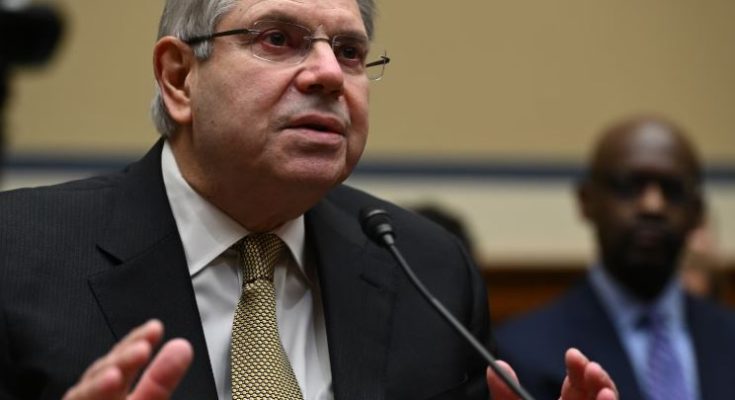Washington’s chief auditor says Trump’s federal worker firings should be done in a respectful, dignified way and not cause greater risks to the government.
Gene L. Dodaro, the government’s chief auditor, might not know every detail about the federal government, though it often seems that way.
As comptroller general of the United States, Dodaro leads the Government Accountability Office, a role he’s had for 17 years. He’s worked for the agency since 1973 — when another president, Richard M. Nixon, like the current one, sought to bust bounds of presidential power.
The GAO, a nonpartisan congressional organization with broad authority to review federal programs and spending across the government, helps Washington save money and increase efficiency. Efficiency is not what Dodaro sees in the Trump administration’s aggressive purge of the federal workforce, as he said in an interview Tuesday and during a recent House Oversight Committee hearing.
“I would not consider it a best practice,” he replied. “There’s a need for change, but how you do it matters and going about it in the way that’s being done now can cause … problems for the government because it can create other vulnerabilities, unintended vulnerabilities. … It should be done in a respectful way and it should be done also in a way that does not hurt the federal government in the long term.”
Instead, Trump has treated federal employees like trash, chaotically throwing them out with little notice, closing agencies without congressional approval and making federal service an unwelcome destination for America’s finest.
Dodaro said the GAO’s examination will include DOGE’s access to government systems and potential conflicts of interests. DOGE, however, as a White House office, does not have authority over the GAO, a legislative agency.
“We’re not subject to the Department of Government Efficiency,” Dodaro explained. “We audit them. They don’t audit us.”
“We are looking at that issue,” Dodaro said. “We’ve already sent letters to the administration, asking them to explain their legal position to us. We will be making rulings as to whether or not these issues violated the Impoundment Control Act or not.”
Dodaro’s concerns and criticisms are practical, not ideological. He is fiercely nonpartisan and widely praised by Republicans and Democrats. He emphasized that “no matter what the policy is, I’m agnostic on the policy. That’s for elected officials. But I’ve seen good policies that don’t get implemented effectively because you don’t have the right people.”
Dodaro was on Capitol Hill two weeks ago to discuss the GAO’s new “High-Risk List,” a biennial report that identifies government programs with “serious vulnerabilities to fraud, waste, abuse, and mismanagement, or in need of transformation.”
Areas in dire need of more employees, according to the GAO, include:
● The Department of Veterans Affairs, which plans to jettison 80,000 jobs, where veterans are more than a quarter of its workforce. Noting the 17 suicides per day among veterans, Dodaro said he is “very concerned” about shortages of mental health services for them, adding, “I think it’s a national disgrace that we’re not providing more help to our veterans who have valiantly served our country.”
● HHS “does not have the number of medical emergency responders, such as doctors, nurses, and paramedics, it anticipates needing,” the GAO said, “to effectively respond to disasters and public health emergencies.”
Dodaro has this word of caution:
“This is where a lot of administrations had problems in the past,” he said. “You can have a great plan, but if you don’t have the people to execute it properly, you’re going to get suboptimal results. … I think it’s important that this downsizing be done in the proper way to ensure government performs effectively for the American people.”

